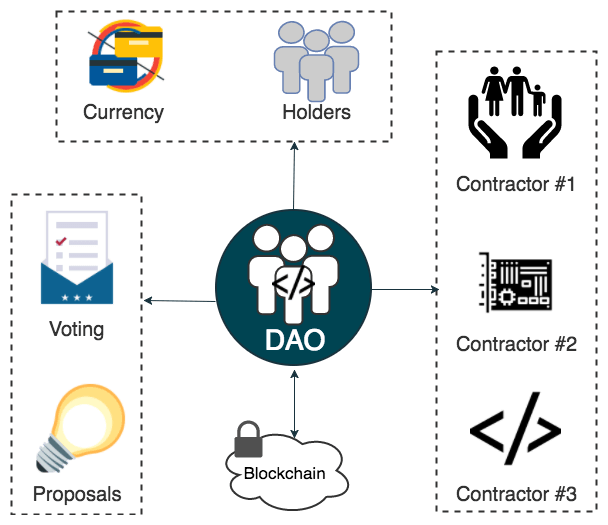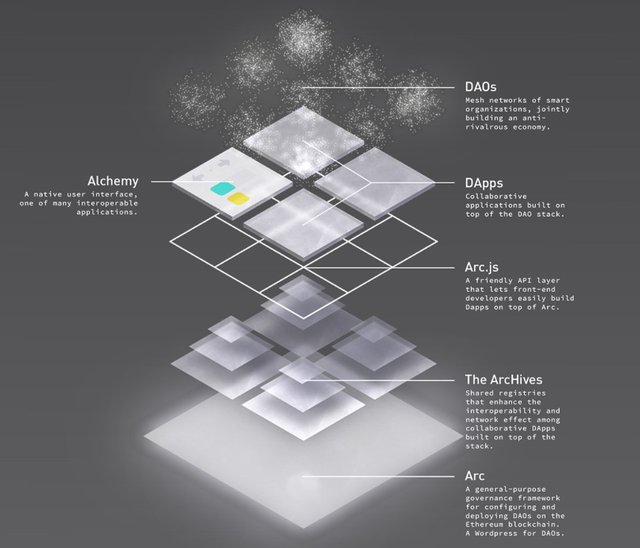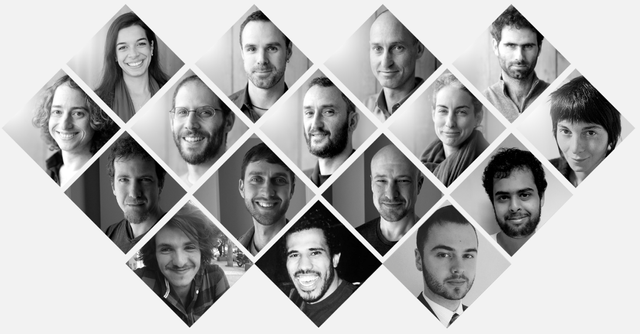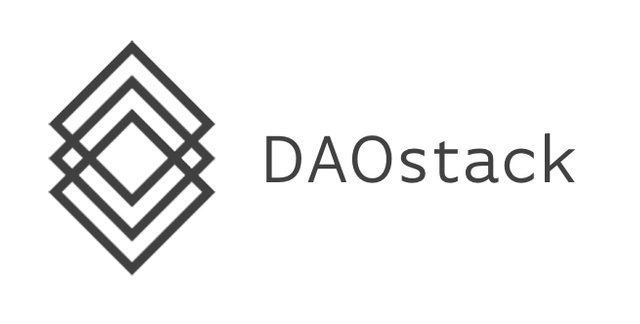TL;DR: DAOstack - An Operating System for DAOs
https://daostack.io My TL;DR: DAOstack - A foundation layer on top of which DAOs can be easily built and managed, featuring a novel voting mechanism where token holders bet on proposals passing or failing, and lose or gain their tokens based on the outcome.
What is a DAO

Image source https://blog.codecentric.de
DAO stands for Decentralized Autonomous Organization and is a form of organizational governance applicable to all levels spanning from teams to businesses and even countries, or any type of interest group. The decentralized nature means there is no single decision maker, rather, things move forward in the direction decided by the group. In a certain sense, it dis-intermediates hierarchy, and its reach can be global, as digital jurisdictions can be created based on common interests rather than just being limited by things such as an employers or a geography.
DAOs are not new. Notable ones already exist such as Digix (tokenized gold, managed as a DAO), Dash (digital cash, projects budgeted by voting), and obviously “The DAO”, whose failure notoriously led to the Ethereum / ETC fork.
What is DAOstack

The DAOstack layers
The DAOstack project aims to provide a framework on top of which DAOs can be built. It is called a “stack” because it is comprised of a number of layers.
At its foundation sits Arc - a smart contracts framework that provides the basis for deploying the needed logic for building DAOs.
Then there are the ArcHives - collections of smart contracts and metadata deployed on the Arc framework (Compendium), directories of DAOs (Mosaic), and a marketplace for development of new content (The Hive). The GEN token is used to add, buy, sell or subscribe to various content.
Next is the Arc.js API layer, created to facilitate easy creation of dApps even by people who don’t know Solidity all that well.
Finally, the dApps stack, where all the dApps created reside. One notable dApp, that will be made readily available by the project is Alchemy. Alchemy is the default GUI, which is a Reddit-like interface for people to view & create DAOs and proposals, and vote on them.
The Genesis DAO

DAOstack itself will be managed as a DAO, via the Genesis DAO, which will also be the first one on the platform. It will be used to steer the further development of the project and will manage a fund of GEN tokens.
A DAO will be comprised of a number of Agencies, which you can think of as departments in an organization. Each of these agencies has its its own set of Schemes, which you can think of as processes to be executed by the respective department. Reputation is distributed in a DAO as it is created, and various members can have different reputation in different agencies within the DAO. Think of this as managers in a company having seniority and influence, either directly in their own department, or indirectly in the organization. A DAO or Agency of a DAO can be included in other DAOs as well, which adds an interesting layer of additional interconnections possible between organizations. A good parallel would be NATO, which is an organization made of multiple countries.
How voting and reputation work

Voting Process of TheDAO – Source: https://daohub.org, via https://blockchainhub.net
To make things easier to understand, I’ll try to illustrate how voting works in the Genesis DAO. An agent submits a proposal. If you believe the proposal is good, you stake GEN tokens in favor of it passing. If the proposal passes, you get rewarded tokens proportionally to your staked amount. The more tokens staked for a proposal, either in favor of it or against it, the more attention it gets in the network, and the more people vote on it.
Users are incentivized to act as influencers in the network as they are staking their own tokens and, presumably, believe in the project their staking. More awareness raised means more votes, which means the odds of it passing increases.
The voters in a DAO are the reputation-holders, which are generally people that have, over time, proven they hold the respective DAO’s best interests at heart. Reputation is assigned at the creation of a DAO to certain people and is accrued or lost via proposals by members looking to reward or chastise participants’ behavior. It also decays over time, so reputation holders are incentivized to stay active if they want to also stay relevant in the DAO.
ICO details

The DAOstack team
DAOstack is looking to raise $30mn for 40% of the tokens. Out of the remaining tokens, 40% will be funneled into the Genesis DAO fund, which will pay for projects to move DAOstack further. Team gets 10% and the remaining 10% is for business development. They will have a product ready at the time of the launch. It has been demoed already and its code is very good, as pointed out by Andre Cronje in his review.
The team is exceptional, notable Matan Fields has been working on DAOs since 2014, and DAOstack is actually a spin-off of a since abandoned project, called Backfeed. They are complemented by a strong suite of advisors, with easily recognizable contributions to DivX, eToro or Gnosis. Gnosis is also a partner, alongside with Endor. Having Endor as collaborator opens an interesting opportunity for integrating social physics into the management of a DAO.
The project is very hyped and has scored exceptionally well on respected ICO reviewers sheets. It is present with a beautiful set of media and AMAs on various channels, and is seeing a lot of interest on Telegram and Reddit.
Conclusion
The thing that I find most worrying about DAOstack is the reputation mechanism. It is not described in too much detail, but at a glance it seems that reputation holders act as managers in a company, so the decisions are not really decentralized entirely, just placed in the hands of a few people. With all their best intentions at heart, they are still just people and decisions will weigh heavily on them, especially unpopular ones where more tokens have been staked against the decision that is being made.
In addition, I think DAOstack is very hard to understand and will have a hard time being adopted by businesses, as it is completely disruptive. They have strong competition in Aragon, which has been in the space for a while, although they have no live product yet. Actually, DAOstack might be live first.

DAOstack is a fantastic idea, has a great team, advisors and partners, has a working product and decent token metrics. I however think it is simply too early in the space for a DAO product. We have trouble accepting digital money, and it’s been 9 years already. Even though I look forward to decentralized organizations replacing the inefficiency of classical governance models, I estimate it will take a very long time until any meaningful DAOs come to life. I will avoid the DAOstack ICO.
Coins mentioned in post: